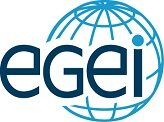Eligibility criteria
Credits in economics
Only students who have earned (or will earn before september 2025) 180 ECTS credits in economics, applied economics or related disciplines are eligible.
Applicants should have gained a sufficient number of credits in economics. The eligibility criteria on the credits acquired in economics depends on a combination of two dimensions: i) number of credits (at least the equivalent of a full semester of studies); ii) type of subjects taken (a sufficient knowledge of micro- and macro-economics is compulsory; other subjects such as public economics, international economics are also desirable).
For students with a BA not in economics but in related studies (business, accounting, finance, international relations etc.) the evaluation by the selection committee might be on a case by case based on the transcript of records. Applicants with less than a full semester in economics (that is approximately between 20-30 ects) or without basic courses (ex. with no microeconomics and or macroeconomics or with limited quantitative skills) will not be considered as eligible.
I obtained my bachelor’s degree in a subject other than economics, can I still apply?
As long as there is a sufficient knowledge of Economics this is not a problem but the number of credits in economics should be adequate (see above).
English proficiency
As a proof of your english proficiency you can either provide a standard certificate (IELTS, TOEFL etc.) or give to the EGEI selection committee proof of your proficiency in a different way (for instance no certificate is required if you earned a degree fully taught in English language; in this case we will check your proficiency with an interview)
If you do not have a standard certification, given the difficulties related to the pandemics, you might still apply and inform us – in the online application – that you opt for an interview with the EGEI selection committee.
Documents to be included in the application
Official traslation of diploma and transcript of records
The formal verification of all official documents is not required at the application stage (for the selection of Erasmus Mundus scholarship holders) but will be compulsory for enrollment at a later point.
Reference letters
We require at least 1 reference letter and max 3. The details of the person(s) providing the reference letter should be included in the application form. The EGEI selection committee will contact the referees but ONLY for applicants that based on a pre-screening are among those that can be included in the shortlist (we receive more than 1000 applications each year and we include only top candidates in a shortlist). The reference letter should contain: i) the official letter head of the organization of the referee; ii) referee’s signature; iii) (where possible) stamp of the organization of the referee.
Motivation letter (tips)
DOs:
- Identify yourself. Think about why you are pursuing Erasmus Mundus;
- Explain why the EGEI programme is the right one for you (ex. demonstrate the fit between your background and the programme);
- State what qualities can you bring to the programme;
- Highlight your strong points, your previous experience in education,
interpersonal skills (but don’t repeat your CV);
DONTs
- Don’t be lengthy. Generally one page is sufficient;
- Don’t use complex and/or vague language constructions or flowery phrases
Application fees
There are no application fees.
Other queries
If I am not selected for the Tuition Waiver Scholarship can I still participate in the programme?
All students applying before 28/February/2025 will be evaluated and considered for the attribution of the scholarships. If your application is considered eligible but you are not awarded the scholarship you can still apply as a self-funded student or be considered for other funding opportunities. Based on the Erasmus Mundus regulations, the enrollment fees depend on your nationality; for the academic year 2025_2026 the fee is € 2500 per year for Erasmus+ Programme Countries (all EU countries plus some non-EU neighboring countries) and € 8000 per year for all other students (all other countries).
The Consortium is entirely composed by Public (non-profit) Universities and our unique goal is to promote a high-quality and high-impact programme that is inclusive, diverse and attractive for highly qualified students around the globe. On the basis of academic merit we might assign to students from developing countries and/or with limited financial resources non-EU scholarships as a partial reduction of enrolment fees; these scholarships will be assigned by the EGEI Consortium on a case-by-case evaluation.
What is the mobility requirement for completing the programme?
To obtain the Erasmus Mundus Joint Degree, students must study at minimum two EU consortium Universities that are different from their country of residence.
Which kind of degree I will get?
Upon successful completion of the programme, students shall be awarded a European Mundus Joint Master Degree entitled “Economics of Globalisation and European Integration”, which is officially recognised as a master’s degree by each university and in each country of the consortium. The University of Tartu will also award a double degree.
